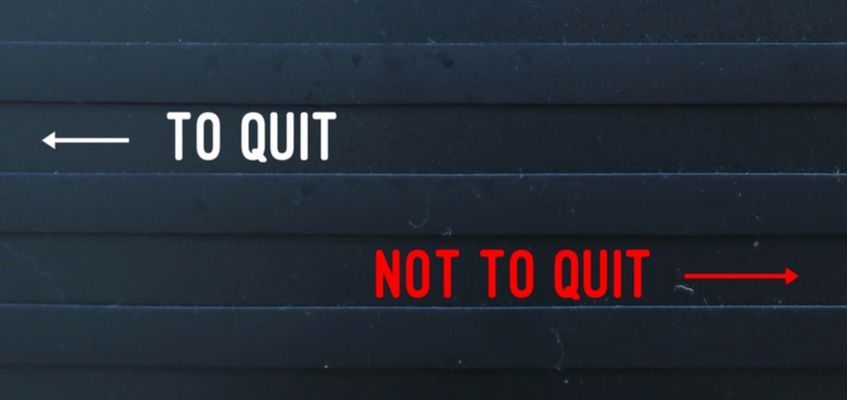
5 things to consider before joining the Great Resignation
The pandemic made a lot of people realize that life is too short to spend it chained to an office, so they followed their dreams to start their own business or go freelance. So much so that it kicked off a trend that’s been coined ‘The Great Resignation’, and it doesn’t seem to be slowing down anytime soon. In fact, 77% of HR professionals in the US think that it’s going to be a permanent change to the labor market.
If you’re thinking of joining the Great Resignation to go freelance, live as a digital nomad, and take back control of your work hours, we applaud you. We work with lots of freelancers and entrepreneurs who love their lifestyle. But because we’re familiar with the freelance experience, we’d also like to share some wisdom. It’s tempting to wave goodbye to your irritating boss and work from the beach, but the freelance life isn’t always easy.
Before you quit your job and join the Great Resignation, here are 5 things to consider that we’ve learned from our freelance users.
1. Freedom comes with responsibilities


When you’re freelancing or running your own business, you’ll be your own boss, for both the good and the bad. That means that if you’re not motivated to put in the hours, there won’t be anyone there to remind you.
You’ll have to market your own skills and abilities, you’ll have to negotiate with the nightmare client, and you’ll have to decide whether you can afford to upgrade your laptop. You won’t have a manager to hand these things on to, a marketing department to advertise your business, or a finance department to approve expenses. There’s nobody in charge except for you.
2. Freelancers can find it hard to switch off
A lot of people find it hard to draw boundaries when they quit their job to go freelance. Freelancing means you’re “always on.” Work doesn’t end at 5pm or when you leave the office, which means that if you’re not careful, it never ends.
At the beginning, freelancers often feel pressure to work as much as possible, so they don’t take the breaks they need. But it’s important to allow time for vacations, a walk round the block, or a drink with friends. Learning how to “leave work” and relax can be a challenge for freelancers.
3. You’ll have to be your own accountant


Freelancers need to pay taxes, balance their books, and keep on top of income and expenses. It’s up to you to carry out all the tedious back office jobs like filing accounting documents, and you’ll probably also have to pay your own health insurance, social security, and pension contributions.
As a freelancer or solopreneur, you won’t get paid unless you ask for it. Nobody likes to have to ask people for money or to send payment reminders, but you’re going to have to get used to it.
4. Your income won’t be consistent
As an employee, you get the same paycheck every month, but when you’re a freelancer or an entrepreneur, there’s no such thing as a “normal” month. Some months you’ll be super busy and enjoy a massive revenue, and other months work can be low and things can seem bleak.
You need both patience and savings to get you through the lean times. You’ll learn to keep some money as a buffer for the slow months, and not to stress out when no clients get in touch for a while.
5. It takes time to build a reputation


Once you’re established as a freelancer, word of mouth will be your best marketing tool. Your happy clients will come back for more and recommend you to others, and you won’t have to spend much time actively marketing your capabilities.
But growing a list of regular clients doesn’t happen overnight. It’s recommended to allow at least 3 months before you have a regular freelance income. If you don’t feel you can do that, you could stay in your job a bit longer and either grow your savings, or freelance on the side to get a head start on building a reputation.
Payoneer can help you reach your Great Resignation goals
By considering these issues before you quit, you can find ways to deal with them in advance so they don’t hit you unprepared. There are plenty of tools that can help make the switch to freelance go more smoothly, and Payoneer is one of them.
For example, Payoneer offers ways to simplify bookkeeping tasks like invoicing and requesting payments, so that they don’t take up so much of your time. With Payoneer, you can send a payment request to any client, anywhere, and they can pay with their credit card in local currency. By making it easier for them to pay, you make it more likely that they’ll pay on time.
Payoneer also has competitive rates for currency conversion and gives you flexibility about how you access your funds. This gives you freedom to work wherever you like and still get your money easily, without having to pay high credit card foreign exchange fees or wait days for a bank transfer to clear.
If you’re ready to join the Great Resignation and set up as a freelancer or entrepreneur, we’re ready to support you.




